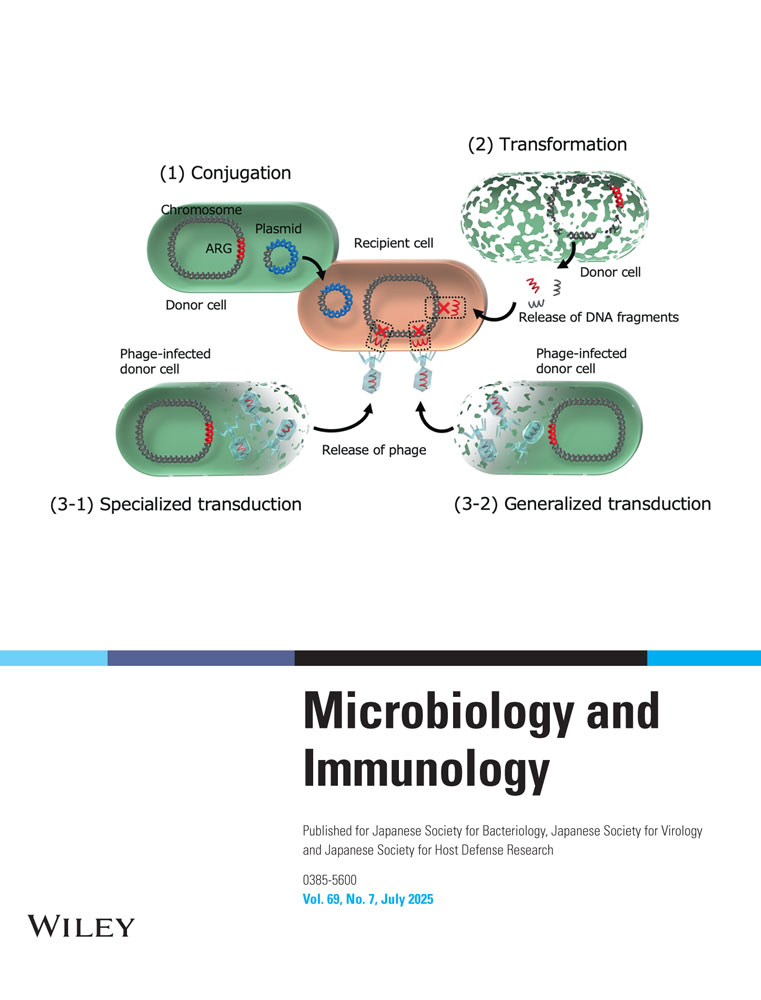Therapeutic Oral Vaccination Induces Mucosal Immune Response Sufficient to Eliminate Long-Term Helicobacter pylori Infection
Abstract
We examined the efficacy of therapeutic oral vaccination using Helicobacter pylori-whole cell sonicate and cholera toxin (CT) in mice persistently infected with H. pylori. Efficacy was determined by bacterial culture and microscopic examination of gastric tissues for the persistence of bacteria at 6 weeks after the last vaccination. Vaccination of H. pylori-whole cell sonicate combined with CT eradicated bacteria in 10/16 mice (62.5%). Interestingly, oral vaccination with CT alone also eliminated the bacteria in 8/17 mice (47.1%). However, a therapeutic intraperitoneally administered vaccine failed to eradicate H. pylori from the stomach (1/17 mice, 5.9%). Identification of the type of immunity involved in the eradication process showed that oral vaccination enhanced the antigen-specific IgA in the feces and saliva. The efficacy of eradication of H. pylori correlated well with increases in IgA secretion in mucosal tissue and a higher labeling index of IgA-positive lumina of pyloric glands. Moreover, the expression of IL-4 mRNA in the stomach of mice with eradicated bacteria was higher than in the uneradicated group. Our results suggest that the efficacy of vaccination depends on the mucosal IgA response in the gastrointestinal tract against H. pylori via Th2 cell activation and that therapeutic oral vaccination induces a mucosal immune response sufficient to eradicate long-term infection with H. pylori.
Abbreviations
-
- BSA
-
- bovine serum albumin
-
- CFU
-
- colony-forming unit
-
- CT
-
- cholera toxin
-
- ELISA
-
- enzyme-linked immunosorbent assay
-
- HE
-
- hematoxylin-eosin
-
- HP
-
- Helicobacter pylori
-
- LI
-
- labeling index
-
- PBS
-
- phosphate-buffered saline
-
- RT-PCR
-
- reverse transcription-polymerase chain reaction




